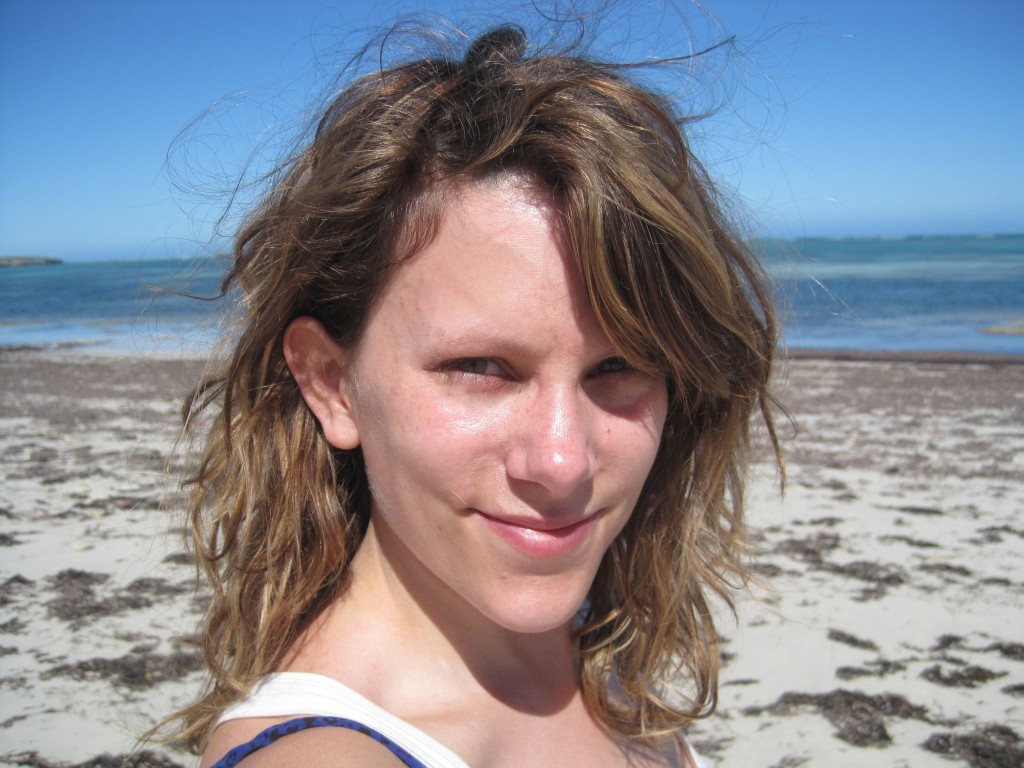In the ninth instalment in our series of Q&As with Blue Ventures staff, we ask Jo Hudson, our Conservation & Communications Officer, some searching questions about science, conservation and superpowers…
What is your scientific background?
I did a BSc in Environmental Science at the University of Sussex, and actually applied to do my MSc at Imperial College on a whim – I was undecided on what my next steps would be once graduating and saw this new course in Conservation Science and applied. My MSc was aimed at science graduates or conservationists (without a traditional science background) who wanted to get practical and theoretical conservation experience. I got to work with renowned conservationists not only from Imperial (Prof Georgina Mace became a person I hero worshipped by the end of my course) but also from ZSL, Durrell and Kew Gardens. None of my education was specifically marine orientated but I have spent time volunteering on marine projects and even based my undergraduate theses on coral reefs and mangrove aquaculture respectively.
Why do you do what you do?
Having been an avid watcher of David Attenborough (my lifelong hero and inspiration) since as long as I can remember, I never wanted to do anything else (well I did flirt with being a vet for a while but I wanted to be a wildlife vet). I am passionate about trying to protect our environment in a way that does not exclude people, and this is what BV is all about. I have worked on both terrestrial and marine projects all over the world, and for me there is no greater feeling of satisfaction than knowing, that even your most boring tasks, are helping to make a difference in the long term for the environment.
What is the best/worst thing about being a conservation scientist?
The best aspect is seeing the impacts that your work has, the positives that can be accomplished with some hard graft and elbow grease. Also the chance to see nature first-hand, no matter if I’m diving on a coral reef or sitting in a 4×4 counting elephants, I get a childlike thrill from seeing mother nature at her very best.
The worst is seeing the damage that we are doing to our planet, and the problems of ‘shifting baselines’ where people accept the way the planet is now as this is all they know. Also the slowness of any legislation or policies to actually come into effect; it’s incredibly frustrating that 20 years on from the Rio Summit in 1992, we are not really any further on to achieving many of the aims set out at that landmark meeting.
What do you enjoy most about your job?
I love the fact that I get to work with like-minded, passionate people who care deeply about what they do. Also that not everyone in BV is a traditional ‘scientist’, which means you get to learn about different approaches to the same problem and create innovative solutions.
What is your favourite species or group of species and why?
This is hard question! For the marine world I would have to say it’s a close call between nudibranchs or the nautilus. Nudibranchs are amazing, outrageously coloured molluscs that can be found mainly in shallow, warm seas. These creatures often resemble the more gaudy types of Christmas ornaments then animals, and are always a joy to see when diving. Why Nautiluses? Well these ancient cephalopods are living fossils, and have hardly evolved over the last 500 million years – to me they look like aliens from another planet and it is one of my life aims to see a nautilus in the wild (unlikely as they tend to live in deep, cold water!).
What would your science superpower be?
The power to teleport would be extremely useful in BV’ line of work. You could pop over to Madagascar for a meeting, then over to the USA to meet partners all in one day, and of course with no carbon footprint.
What is one of the strangest things that has happened to you while working on conservation?
I have a few stories, but this experience is definitely up there, possibly on par with the tale of me falling off a truck while in the middle of large predator survey in Zambia. While working in the Okavango Delta as a research assistant on an elephant project, I was out doing social surveys – interviewing local farmers whose fields had been raided by elephants. Botswana has lots of different ethnic groups, in which many have the tradition of giving a guest a gift when they visit your home (opposite to what people in UK do). So during my interview the farmer’s wife slowly started bringing over watermelons, pumpkins, sugar cane and maize and piling it up. By the end there was a considerable heap and all for myself and the translator! I had to attempt to carry a couple of watermelons plus the rest a few miles back across the fields to the car. I didn’t want to be rude, but by the end after dropping the melons a few times, I was exhausted! On the plus side as one of the watermelons had burst we had to eat it immediately – which was welcome after all that heavy lifting.


